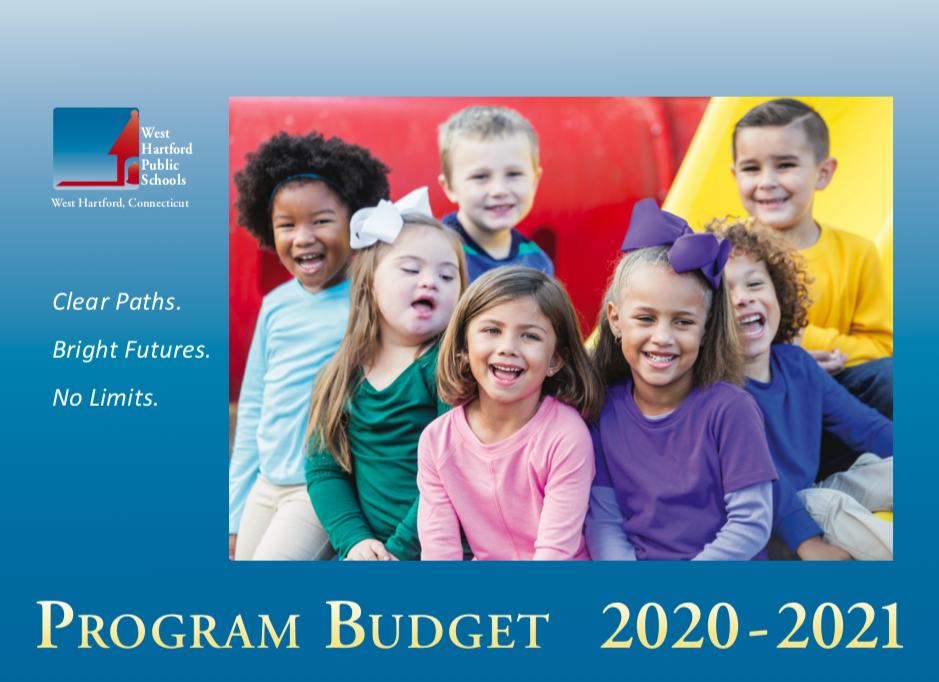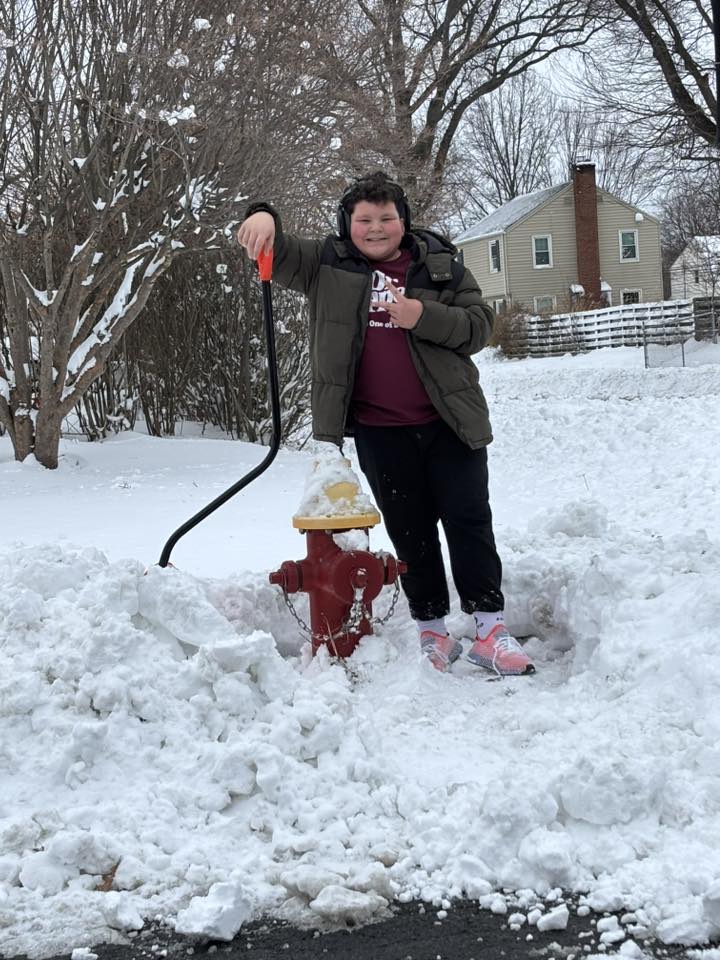West Hartford Board of Education Gives Unanimous Approval to Budget

Audio By Carbonatix

After voting on several amendments to what was initially proposed by Superintendent Tom Moore, the West Hartford Board of Education unanimously approved a budget for the 2020-2021.
By Ronni Newton
For the first time in recent memory, the West Hartford Board of Education unanimously adopted its budget, voting 7-0 to approve a $170,301,528 spending plan at its virtual meeting Tuesday night.
“This budget is a priorities document,” Board Chair Deb Polun said after the vote.
While the COVID-19 pandemic quickly impacted the town and the schools, the return to some semblance of a new normal is uncertain, and she said that this budget is “at best guess an educated guess” because no one can yet fully determine what the next school year will look like. It is, however, “a balance between what the board thinks is important for our students and our staff and families in a way that is responsible and responsive to the economic difficulties our town and state are expected to face over the next year,” Polun said.
And while the budget was reduced by more than $4 million from what Moore had originally proposed back in March, the Board on Tuesday added back a few items that were originally planned to be eliminated – the ASK program at Hall High School and a middle school math coach – and amended the cost of “pay to play” at the high schools.
Overall, the adopted budget represents a 0.89% increase over last year’s Board of Education budget, far less than the 3.48% increase originally proposed by Moore.
With the 0.89% increase, “we maintain our commitments to our children at a time when the need is growing not shrinking,” Polun said of the budget passed by the Board Tuesday night.
The budget first presented to the Board by Moore in March “was a budget for a different world than we are in now,” Moore said last week when he presented amendments reducing his original proposed budget by $4.6 million – a goal that had been reached in collaboration with Town Manager Matt Hart. Moore said there are so many unknowns, and he doesn’t know when students will be able to return to the brick and mortar schools, if there will be summer school, or if there will be just a recession or a depression.
The Board of Education held one workshop on its budget before the full impact of the COVID-19 pandemic forced the closure of schools and town buildings, and held a second workshop last week to discuss the $4.6 million reduction proposed by Moore. That workshop directly followed a virtual public hearing, which did not have any participants from the community.
On Tuesday, the Board first approved a motion to consider the budget with the $4.6 million reduction, which totaled $170,073,528 and represented an overall 0.75% increase over the FY2020 budget.
Ultimately, the Board voted to add back another $228,000 to the budget.
Mark Zydanowicz, one of two Republicans on the Board and overall the longest-serving member, proposed amending the “pay to play” charges from the proposed $175 per sport with a four-sport cap per family to $150 per sport with a three-sport cap per family.
Zydanowicz said he personally has been approached by two families that already felt the burden of the cost but would not necessarily qualify for for a fee exemption because they aren’t eligible for the federal free and reduced lunch program. Those families instead might have to make the decision to not allow their children to participate in a sport.
“This might be a little bit of cushion. … Every little bit counts,” Zydanowicz said, and with the increased economic uncertainty, more are likely to feel that need.
Moore said that families who are eligible for free and reduced lunch benefits are made aware that the fees for sports can be decreased or eliminated.
“I strongly support this. I think it’s a small thing we can do to help families. … I would like to make this small change,” Polun said.
The Board voted 7-0 in favor of amending the “pay to play” fees, which reduces revenues to the board and changes the budget by $64,700.
Republican Rob Levine made a motion to reinstate funding for the ASK program at Hall High School – which had been eliminated in Moore’s original budget proposal. ASK, an intervention program that calls for a 0.78 full-time equivalent position and involves a cost of $78,300 for salary and benefits.
The Board received numerous letters from the community requesting that the ASK program be maintained.
“Thank you for bringing this up,” Democrat Sean Passan, a former teacher at Hall who now teaches in Granby, said. “It’s a program that I’ve seen work. I’ve recommended students for it.”
Passan said ASK provides the type of attention and support to students that that can’t be found elsewhere. “The last thing we should be doing is pulling away support in this kind of environment,” he said, even though Moore had said at his March 3 budget presentation that ASK might serve as few as six kids next year.
The Board has discussed eliminating ASK in past budget deliberations, and Moore said he struggles with allocating an extra position at Hall that is not replicated at Conard – particularly when many of the factors that indicate need, such as the percentage of economically disadvantaged students and English language learners is much greater at Conard. “That just doesn’t stand for the equity that West Hartford stands for,” Moore said.
“It was a hard decision to be thinking about before [COVID-19],” Board member Amanda Aronson said, adding that she feels that under the current circumstances with the impact of distance learning, “we need to keep every tool we have for student engagement at our disposal.”
Having a program like ASK could make the difference between a student staying in school or dropping out, Aronson said, and she believes that’s more critical than the number of kids involved in the program.
The Board voted 5-2 to reinstate the ASK program in the budget, with Democrat Ari Steinberg and Zydanowicz voting against the motion.
The final change made by the Board was adding back a position for a middle school math coach, a cut that Moore had proposed in the recommended amendments he presented last week. The cost of the position is $85,000, which includes salary plus benefits.
Passan presented the motion to retain the math coach, a role that he said could be critical to assist students particularly since mathematics is a difficult subject for some to comprehend via distance learning.
Paul Vicinus, assistant superintendent for Curriculum, Instruction and Assessment, said that while the math coach is not an interventionist, that person could directly benefit students.
“I’ll be able to put my head on the pillow if I know what I am doing is best for kids,” Passan said.
The Board voted 6-1, with Levine in opposition, to adding the math coach back to the budget.
Moore said that many parts of the budget are “an educated guess.” What the schools will need to do regarding class sizes if there are physical distancing requirements is unknown, and may be very difficult to achieve at the high schools where there are 420 people in each lunch wave.
“What we clearly are all aware of is what our young people are going through,” Board member Lorna Thomas-Farquharson said. She said the Board is responsible for the “well-roundedness of our students” and to ensure their transition in the upcoming school year.
“We know we have to be fiscally responsible. The increase of only 0.89% shows we are doing as much as we can do,” Thomas-Farquharson said.
“This is often a night when I give Tom a lot of hell, and obviously the COVID-19 has colored my response this year,” said Levine, who voted in favor of the budget for the first time in his three years on the Board.
Levine said the proposal is very reasonable, and hopes that if the Town Council – which has ultimate authority for the total appropriation to the Board but not for line items – has to make cuts, that they “find the answers elsewhere.”
The Town Council held a public hearing on the budget Monday afternoon, and will hold its final budget public hearing on Thursday, April 30, at 6 p.m.
To access that hearing and offer comment, callers should:
- Call: 1-415-655-0001
- Input Access Code: 191 626 254
Only those who wish to speak should use the phone connection. Participants will be called on in the order in which their call was received. When prompted by the moderator, participants will have three minutes to speak, except that persons representing a group’s duly authorized position may speak for up to five minutes. Participants using caller ID blocking will not be permitted to participate.
Those who wish to watch the hearing can do so through West Hartford Community Interactive Comcast Channel 5 and Frontier TV Channel 6098. The hearing will also be streamed live at www.whctv.org and available on the station’s YouTube channel for viewing live or on demand.
Residents or taxpayers may also ubmit a written comment to [email protected]. Comments will be shared with all members of the Town Council. Emails must contain the following:
- Email Subject line: [LAST NAME, FIRST NAME] Fiscal Year 2020-2021 Budget
- The body of the email must begin with the commenter’s full name and street address and a statement that they are either a resident or taxpayer.
- Comments must be germane to the Fiscal Year 2020-2021 budget and no longer than 500 words.
The Town Council is tentatively planning to schedule its budget vote for May 12, but based on permitted changes to the budget adoption process outlined by Gov. Ned Lamont’s executive orders, has until May 26 to adopt it.
Like what you see here? Click here to subscribe to We-Ha’s newsletter so you’ll always be in the know about what’s happening in West Hartford! Click the blue button below to become a supporter of We-Ha.com and our efforts to continue producing quality journalism.




[…] voted Tuesday night, 5-2 along party lines, to cut the three items it had added back to the budget unanimously adopted April 28. The Board also learned that plans for high school graduation have been set for June 24 and 25 with […]